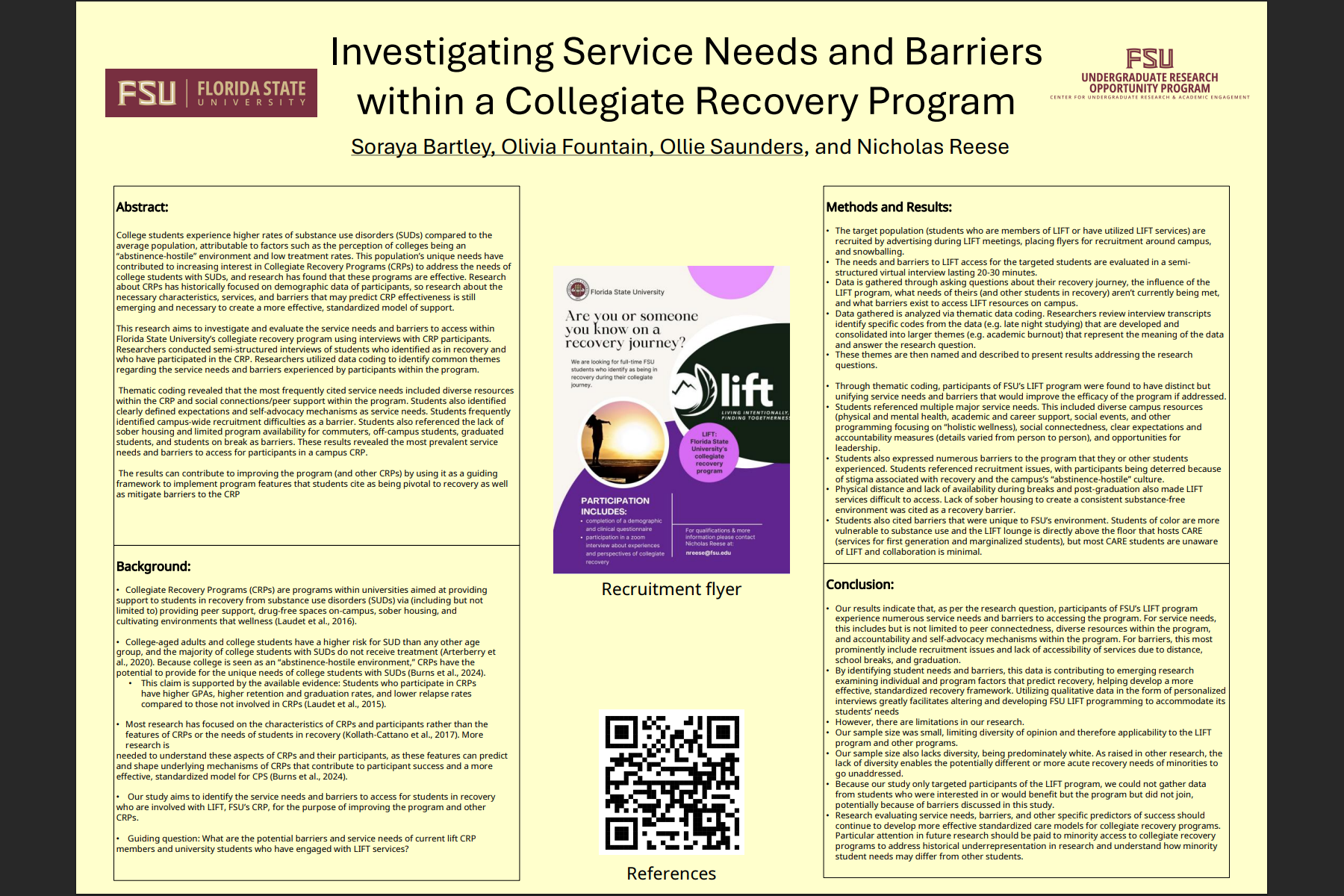Research Symposium
25th annual Undergraduate Research Symposium, April 1, 2025
Soraya Bartley Poster Session 4: 3:00 pm - 4:00 pm/ Poster #230
BIO
Greetings, I am Soraya Bartley, a first-generation college student from Broward County, South Florida. As a second-year student majoring in Sociology on the Pre-Med track with a minor in Child Development, I am deeply passionate about addressing healthcare disparities among marginalized communities. My goal is to attend medical school and become a Pediatrician, ensuring equitable healthcare access for all children.
Through the Undergraduate Research and Academic Engagement program, I have the opportunity to explore the unique challenges faced by students in recovery at Florida State University. My research focuses on identifying the needs and barriers they encounter, allowing me to contribute to solutions that support their academic success, well-being, and long-term recovery. By examining these disparities, I aim to bridge the gap between healthcare and education, advocating for comprehensive support systems.
Investigating Service Needs and Barriers within a Collegiate Recovery Program
Authors: Soraya Bartley, Mr. Nicholas ReeseStudent Major: Sociology with Child Development Minor
Mentor: Mr. Nicholas Reese
Mentor's Department: The Center for Health Advocacy and Wellness Mentor's College: College of Medicine Co-Presenters: Ollie Saunders, Olivia Fountain-Zimmerman
Abstract
College students experience higher rates of substance use disorders (SUDs) compared to the average population, attributable to factors such as the perception of colleges being an “abstinence-hostile” environment and low treatment rates. This population’s unique needs have
contributed to increasing interest in Collegiate Recovery Programs (CRPs) to address the needs of college students with SUDs, and research has found that these programs are effective. Research about CRPs has historically focused on demographic data of participants, so research about the necessary characteristics, services, and barriers that may predict CRP effectiveness is still emerging and necessary to create a more effective, standardized model of support.This research aims to investigate and evaluate the service needs and barriers to access within
Florida State University’s collegiate recovery program using interviews with CRP participants. Researchers conducted semi-structured interviews of students who identified as in recovery and who have participated in the CRP. Researchers utilized data coding to identify common themes regarding the service needs and barriers experienced by participants within the program.Thematic coding revealed that the most frequently cited service needs included diverse resources within the CRP and social connections/peer support within the program. Students also identified
clearly defined expectations and self-advocacy mechanisms as needs. Students frequently identified campus-wide recruitment difficulties as a barrier. Students also referenced the lack of sober housing and limited program availability for commuters, off-campus students, graduated
students, and students on break as barriers. These results revealed the most prevalent service needs and barriers to access for participants in a campus CRP.
Keywords: Recovery, Substance use, Addiction, Qualitative

